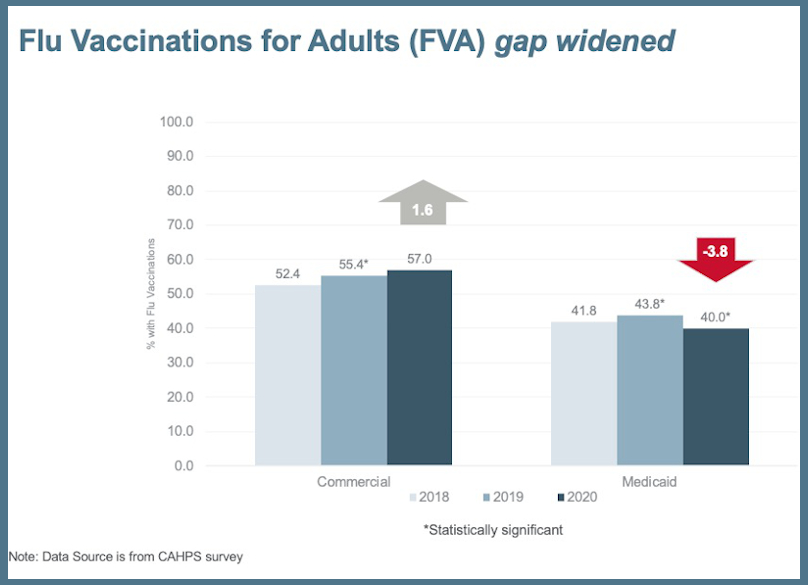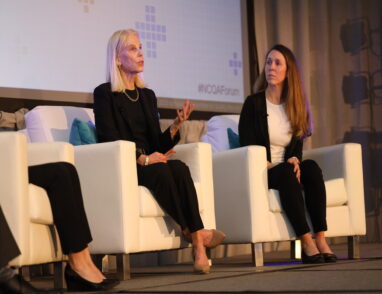Flu Vaccinations: HEDIS Results During COVID
November 16, 2021 · NCQA Communications
Medicaid health plans fell further behind commercial plans in vaccinating adult members against flu in 2020, NCQA researchers announced in Episode 10 of our Future of HEDIS webinar series.
Although there is a long-standing gap between these two groups, the gap widened in 2020:
- Commercial flu vaccination rates increased slightly.
- Medicaid rates had a statistically significant decrease.
Why These Vaccination Rates Matter

In a word: equity.
Measurement shines a light in areas where the quality of health care might not be same for all Americans. We worry when a difference in quality gets wider—especially now, when COVID has highlighted stark differences for lower-income or under-resourced people. The widening gap between commercial and Medicaid vaccination rates might tell a story of inequity.
Before COVID, flu was the common, contagious and potentially deadly respiratory illness health care advocates watched every year. But even as the pandemic continues, people who care about public health shouldn’t forget about flu:
- Annual vaccination is the best protection against flu.
- Vaccination can reduce flu-related hospitalizations by 71%.
- Federal guidelines recommend yearly vaccination against flu for all adults.
What Can Be Done?
Health plans can improve flu vaccination rates by:
- Making vaccines accessible and easy to get. Alternative sites to the physician’s office, such as pharmacies and worksite
 locations, can provide convenient access to vaccinations. This is especially effective in areas where medical providers are scarce and residents lack transportation. Evening or weekend hours, mobile clinics, drive-throughs and walk-up clinics can expand vaccine access to underserved groups.
locations, can provide convenient access to vaccinations. This is especially effective in areas where medical providers are scarce and residents lack transportation. Evening or weekend hours, mobile clinics, drive-throughs and walk-up clinics can expand vaccine access to underserved groups. - Fighting misinformation and building trust. Confusing messages and unfounded rumors about the flu vaccine’s safety reduce vaccination rates. Provide information from trusted sources to lessen fear of the vaccine. Build trust with groups that have suffered past discrimination by government or health care institutions.
The Bottom Line
- Health plans have adapted and responded to COVID in many ways.
- High-quality health care is equitable care—you can’t have quality without equity.
- Although right now COVID gets more attention, flu vaccinations remain important. If we want to get to equitable care, receiving a potentially life-saving vaccine should be the same for all populations.







